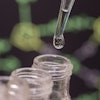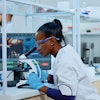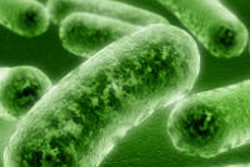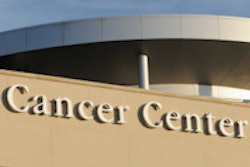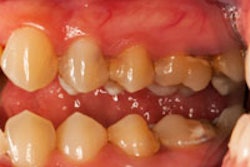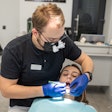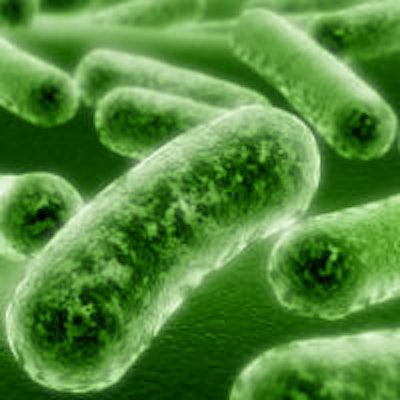
Byproducts in the form of small-chain fatty acids from two bacteria prevalent in periodontal disease incite the growth of deadly Kaposi's sarcoma (KS)-related oral lesions and tumors, according to a new study by researchers from Case Western Reserve University (Journal of Virology, February 5, 2014).
The discovery could lead to early saliva testing for the bacteria, which, if found, could be treated and monitored for signs of cancer and before a malignancy develops, according to the researchers.
"These new findings provide one of the first looks at how the periodontal bacteria create a unique microenvironment in the oral cavity that contributes to the replication the Kaposi's sarcoma herpesvirus (KSHV) and development of KS," said lead study investigator Fengchun Ye, PhD, from the Case Western Reserve School of Dental Medicine Department of Biological Sciences, in a press release.
“The periodontal bacteria create a unique microenvironment in the oral cavity that contributes to the replication the Kaposi's sarcoma herpesvirus and development of KS.”
The research focuses on how the bacteria, Porphyromonas gingivalis (Pg) and Fusobacterium nucleatum (Fn), which are associated with periodontal disease, contribute to cancer formation.
These bacteria are found in high levels in the saliva of people with periodontal disease, and at lower levels in those with good oral health -- further evidence of the link between oral and overall physical health, Ye said.
Kaposi's sarcoma affects a significant number of HIV-positive people, whose immune systems lack the ability to fight off the herpesvirus and other infections, he noted. "These individuals are susceptible to the cancer," he said.
About 20% of HIV patients first develop KS lesions in the oral cavity, while other patients never develop oral KS, the study authors noted.
KS first appears as lesions on the surface of the mouth that, if not removed, can grow into malignant tumors. Survival rates are higher when detected and treated early in the lesion state than when a malignancy develops.
Also at risk are others who are immunocompromised: people on medications to suppress rejection of transplants, cancer patients on chemotherapies, and the elderly whose immune systems naturally weaken with age.
The researchers wanted to learn why most people never develop this form of cancer and what it is that protects them.
The researchers recruited 21 patients, dividing them into two groups. All participants were given standard periodontal disease tests.
The first group of 11 participants had an average age of 50 and had severe chronic periodontal disease. The second group of 10 participants, whose average age was about 26, had healthy gums, practiced good oral health, and showed no signs of bleeding or tooth loss from periodontal disease.
The researchers also studied a saliva sample from each participant. Part of the saliva sample was separated into its components using a spinning centrifuge. The remaining saliva was used for DNA testing to track and identify bacteria present, as well as at what levels.
The researchers were interested in Pg's and Fn's byproducts of lipopolysaccharide, fimbriae, proteinases, and at least five different short-chain fatty acids (SCFAs): butyric acid, isobutyric acid, isovaleric acid, propionic acid, and acetic acid.
After initially testing the byproducts, the researchers suspected that the fatty acids were involved in replicating KSHV. The researchers cleansed the fatty acids, then introduced them to cells with quiescent KSHV virus in a petri dish for monitoring the virus' reaction.
After introducing SCFA, the virus began to replicate. But the researchers saw that, while the fatty acids allowed the virus to multiply, the process also set in motion a cascade of actions that also inhibited molecules in the body's immune system from stopping the growth of KSHV.
"In this work, we demonstrate that a group of metabolic byproducts, namely short-chain fatty acids, from bacteria that cause periodontal disease promote lytic replication of KSHV, the etiological agent associated with KS," they wrote. "These new findings provide mechanistic support that periodontal pathogens create a unique microenvironment in the oral cavity that contributes to KSHV replication and development of oral KS."
The most important finding of this study is that periodontal disease is a possible risk factor for Kaposi's sarcoma tumors in HIV patients, Ye noted. With that knowledged, he said those with HIV must be informed about the importance of good oral health and the possible consequences of overlooking that area.
The research was supported by a career development grant at the Center for AIDS Research at Case Western Reserve University and a National Institute of Dental and Craniofacial Research grant.

